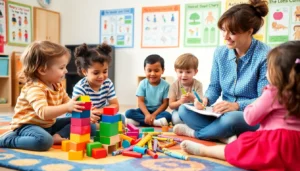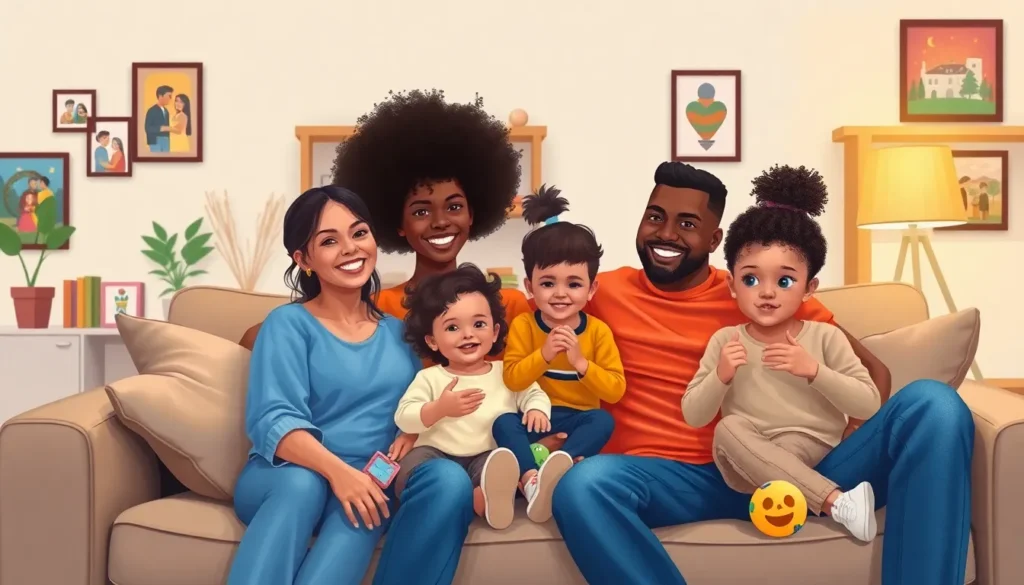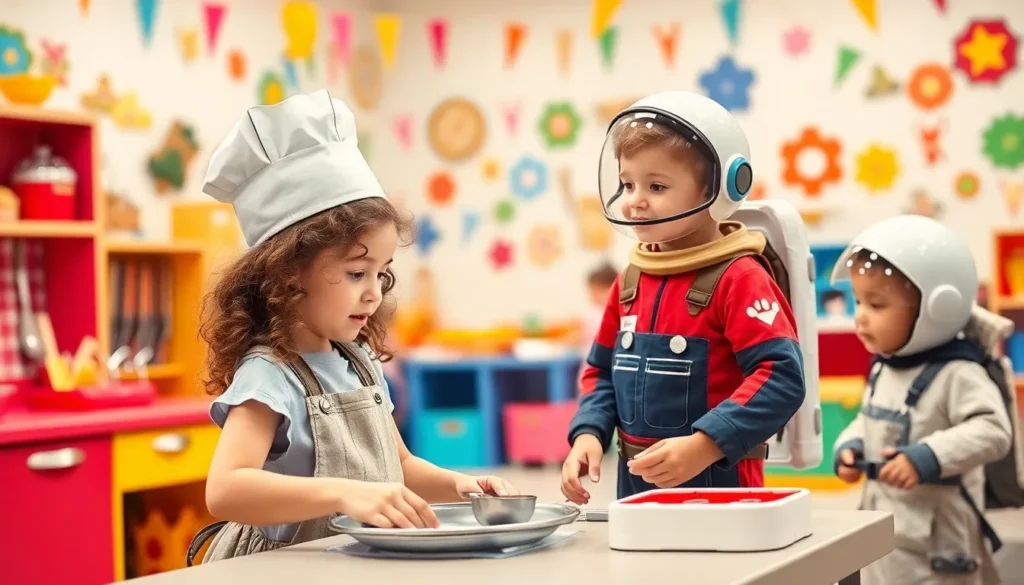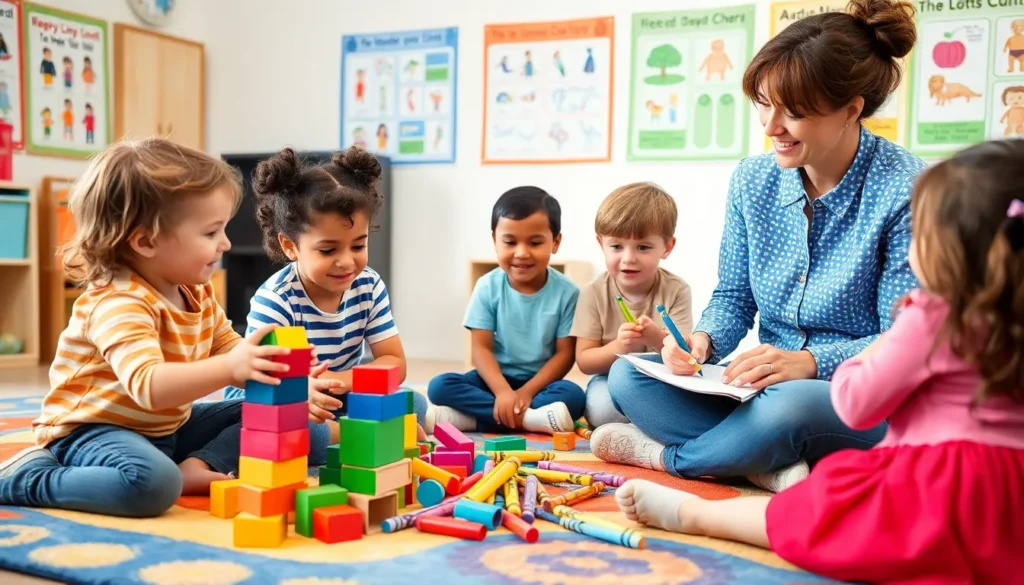Table of Contents
ToggleAdoption therapy might sound like a cozy chat over coffee, but it’s so much more than that. It’s a vital lifeline for families navigating the emotional rollercoaster of adoption. Picture this: a safe space where feelings of loss, identity, and belonging get unpacked like a suitcase after a long trip. It’s where laughter meets tears, and healing happens one session at a time.
Understanding Adoption Therapy
Adoption therapy plays a crucial role in supporting families navigating the complexities associated with adoption. This type of therapy addresses various emotional challenges that arise during the adoption process.
Definition of Adoption Therapy
Adoption therapy refers to specialized counseling focused on the unique emotional needs of individuals and families connected to adoption. This therapeutic approach encompasses issues related to grief, identity, and attachment. Practitioners utilize various techniques, including talk therapy and expressive arts, to help clients articulate their feelings. By fostering open communication, adoption therapy encourages participants to explore their thoughts and emotions in a supportive setting.
Importance of Adoption Therapy
Adoption therapy holds significant importance for families managing the adoption journey. It provides a platform for families to address feelings of loss and confusion, creating a space for healing. Understanding identity issues enhances a person’s sense of self, building resilience. The therapy process often strengthens family bonds as participants learn to navigate their relationships more effectively. Additionally, it offers reliable coping strategies for dealing with challenges that arise in adoptive situations, ultimately fostering healthier emotional development.
Approaches to Adoption Therapy
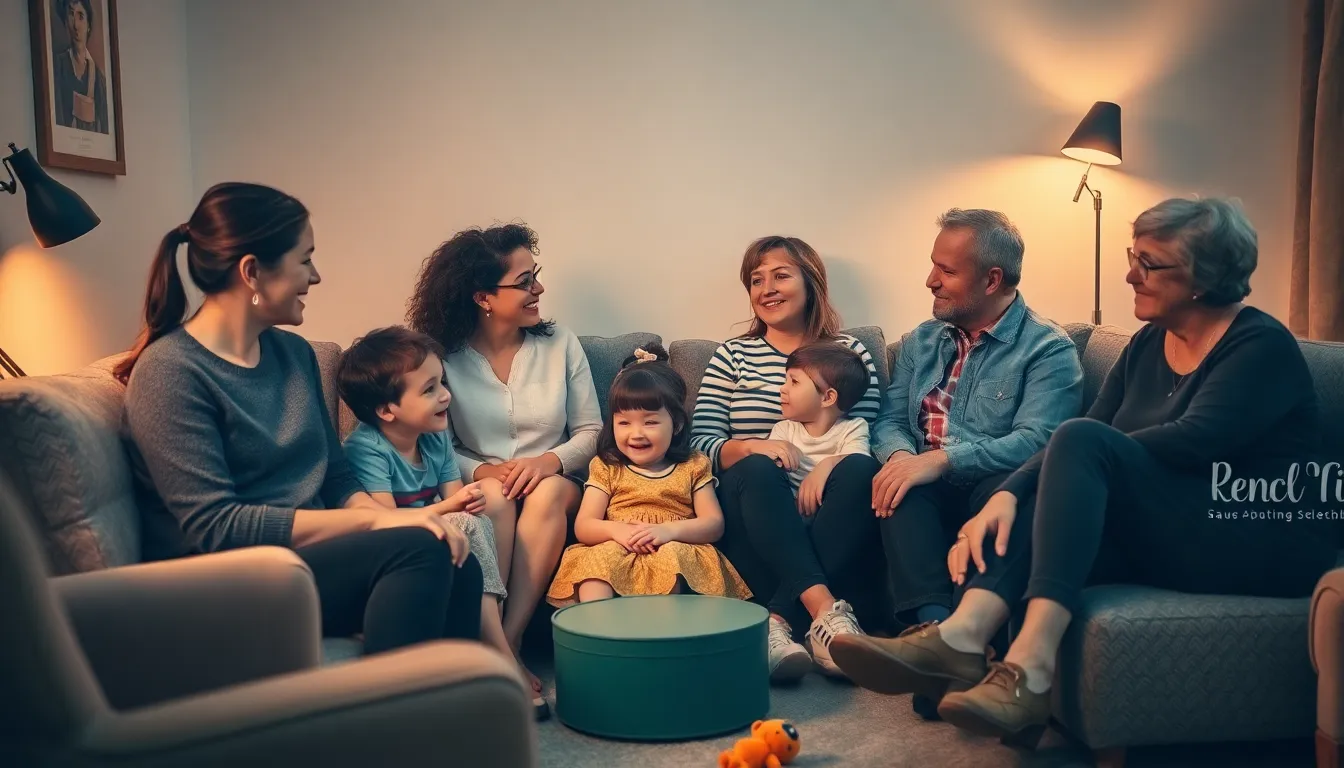
Adoption therapy employs various methods tailored to meet the specific needs of individuals and families. These approaches include individual therapy and family therapy, both vital in supporting the emotional journey through adoption.
Individual Therapy for Adoptive Parents
Individual therapy focuses on the emotional landscape experienced by adoptive parents. It offers a tailored space for personal reflection on feelings of grief, loss, and identity. Participants explore their thoughts and fears, helping to clarify their roles within the family. Experienced therapists guide these discussions, fostering self-awareness and empowering parents. Strategies may include cognitive-behavioral techniques, which address negative thought patterns. This approach also encourages the development of healthy coping mechanisms. By prioritizing individual needs, adoptive parents can enhance their emotional resilience and support their children effectively.
Family Therapy for Adoptive Families
Family therapy provides an inclusive environment for all family members affected by adoption. In these sessions, families navigate complex emotions together, exploring shared experiences. Communication skills often evolve, allowing for effective expression of thoughts and feelings. Therapists utilize techniques like role-playing to help family members empathize with one another. This collective approach can strengthen familial bonds, enhancing mutual understanding and cooperation. Specific challenges related to attachment and identity frequently become focal points during sessions. As trust develops, families learn to confront issues collaboratively, resulting in a healthier family dynamic.
Benefits of Adoption Therapy
Adoption therapy offers crucial emotional support and a pathway towards healthier family dynamics. This specialized counseling helps families address and process the complex feelings surrounding adoption.
Emotional Support for Adoptive Families
Adoption therapy provides a safe space for adoptive families to express their emotions. Individuals and families confront feelings of loss and uncertainty, which promotes healing. Challenges like grief and identity often arise in the adoption process. The support received during therapy nurtures resilience and fosters growth, enabling families to navigate these feelings. Therapeutic techniques such as talk therapy and expressive arts facilitate deeper conversations. Emphasizing these connections strengthens the emotional bonds between family members and enhances overall well-being.
Improved Communication and Relationships
Therapy improves communication skills among adoptive family members. Through facilitated discussions, family members learn to voice their thoughts and feelings openly. Adopting techniques like role-playing fosters empathy, helping individuals understand each other’s perspectives. A focus on shared experiences builds trust and encourages collaboration. Families tackling emotions together create a more supportive environment. Enhanced communication leads to stronger relationships. As a result, members develop deeper connections and an understanding of one another’s unique experiences, ultimately transforming family dynamics for the better.
Challenges in Adoption Therapy
Adoption therapy presents several challenges that clients and therapists must navigate to ensure effective support.
Stigma Around Adoption Therapy
Stigma often surrounds adoption therapy, leading to feelings of shame for families seeking help. Many individuals believe that discussing adoption issues signifies weakness. Misconceptions about therapy can further deter families from accessing necessary resources. Awareness campaigns aim to reduce this stigma, showcasing adoption therapy as a valid avenue for emotional healing. Sharing stories of successful therapy outcomes encourages more families to seek support, emphasizing that pursuing therapy does not imply failure or inadequacy.
Navigating Complex Emotions
Navigating complex emotions poses a significant challenge in adoption therapy. Adoptive individuals frequently grapple with feelings of loss and confusion regarding their identity. Unresolved grief from birth family separation complicates these emotional landscapes. Families often struggle to express their thoughts and feelings openly. Techniques such as talk therapy provide tools for articulating these emotions, while expressive arts facilitate deeper exploration. Therapists encourage participants to address feelings together, promoting connection and understanding within the family unit. Consequently, this collective effort lays the groundwork for healthier emotional development and stronger family bonds.
Adoption therapy stands as a vital resource for families navigating the emotional intricacies of adoption. By providing a safe space for expression and healing, it fosters deeper connections and understanding among family members. The specialized approaches of individual and family therapy address unique challenges, promoting resilience and emotional growth.
As awareness of adoption therapy increases, families can overcome stigma and misconceptions, embracing the support it offers. Ultimately, this therapeutic journey not only enhances communication and empathy but also transforms family dynamics, paving the way for stronger relationships and a healthier emotional landscape.




